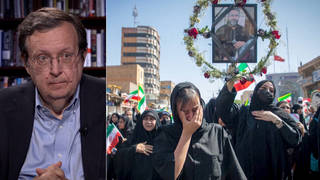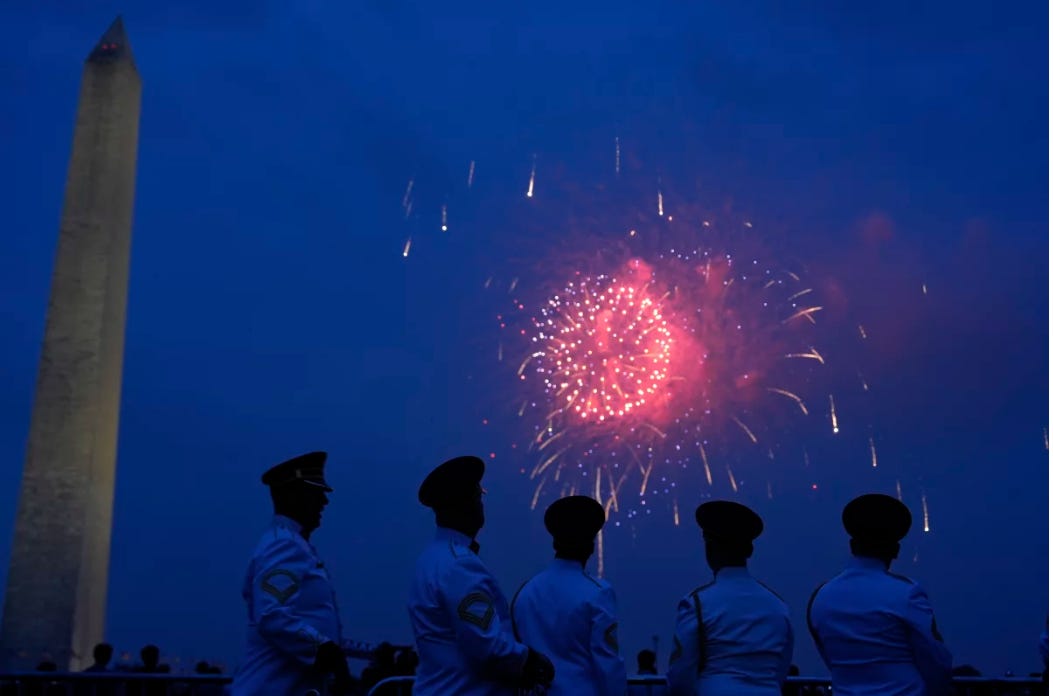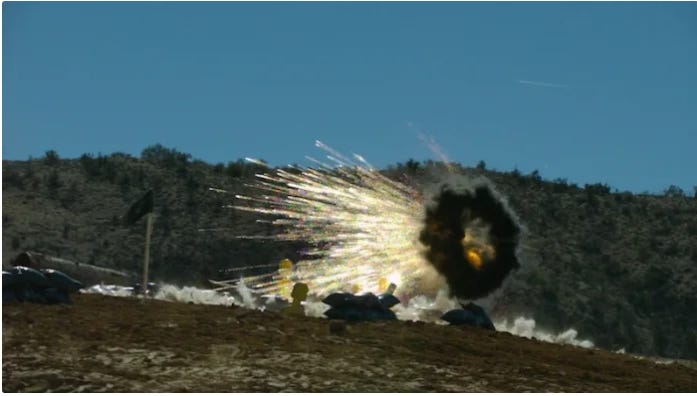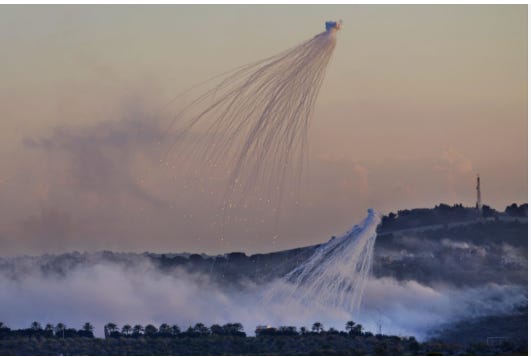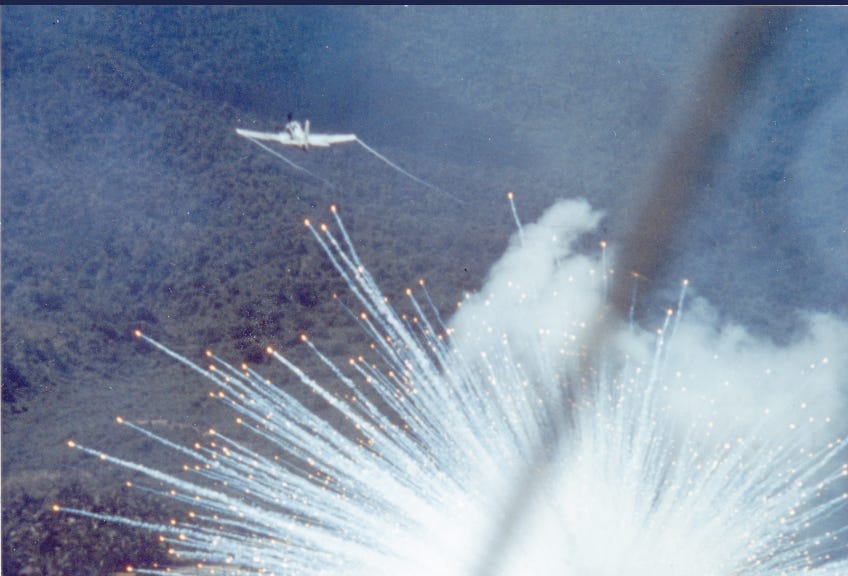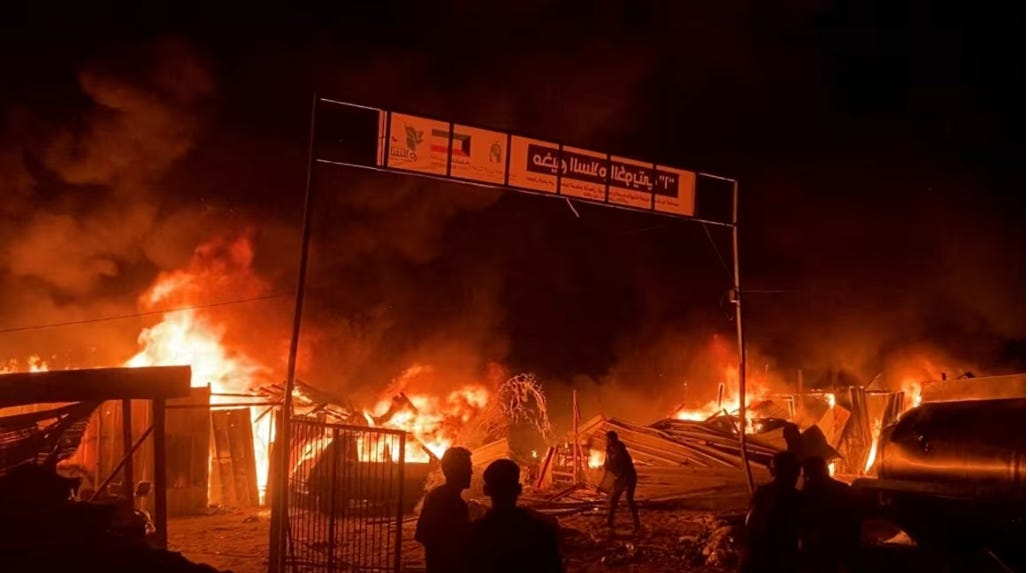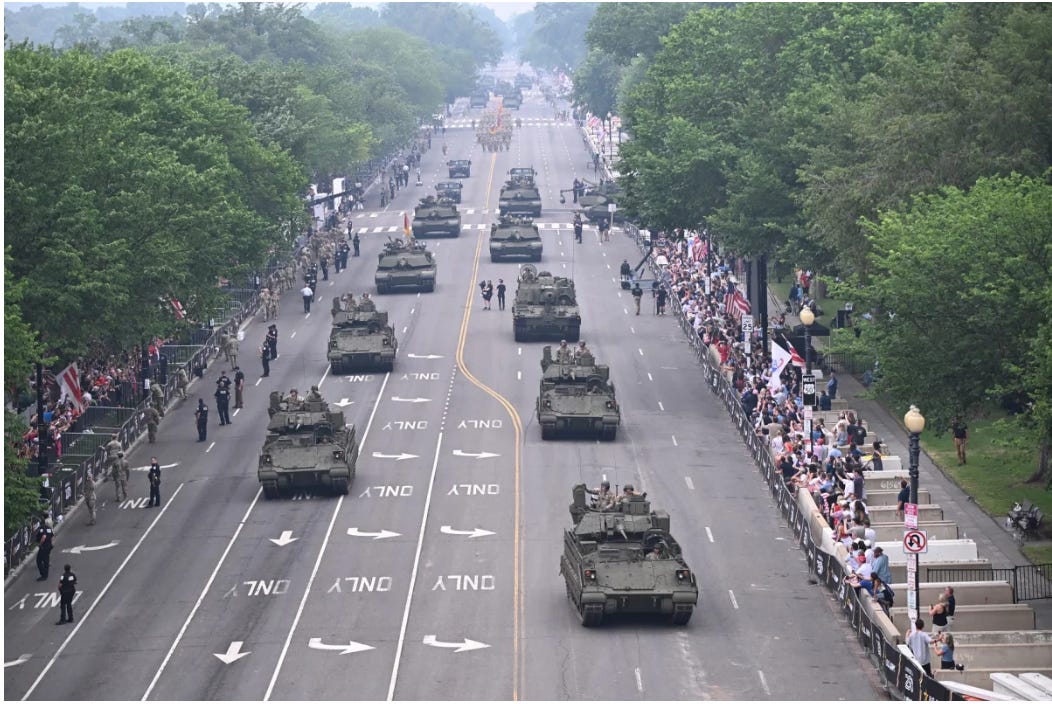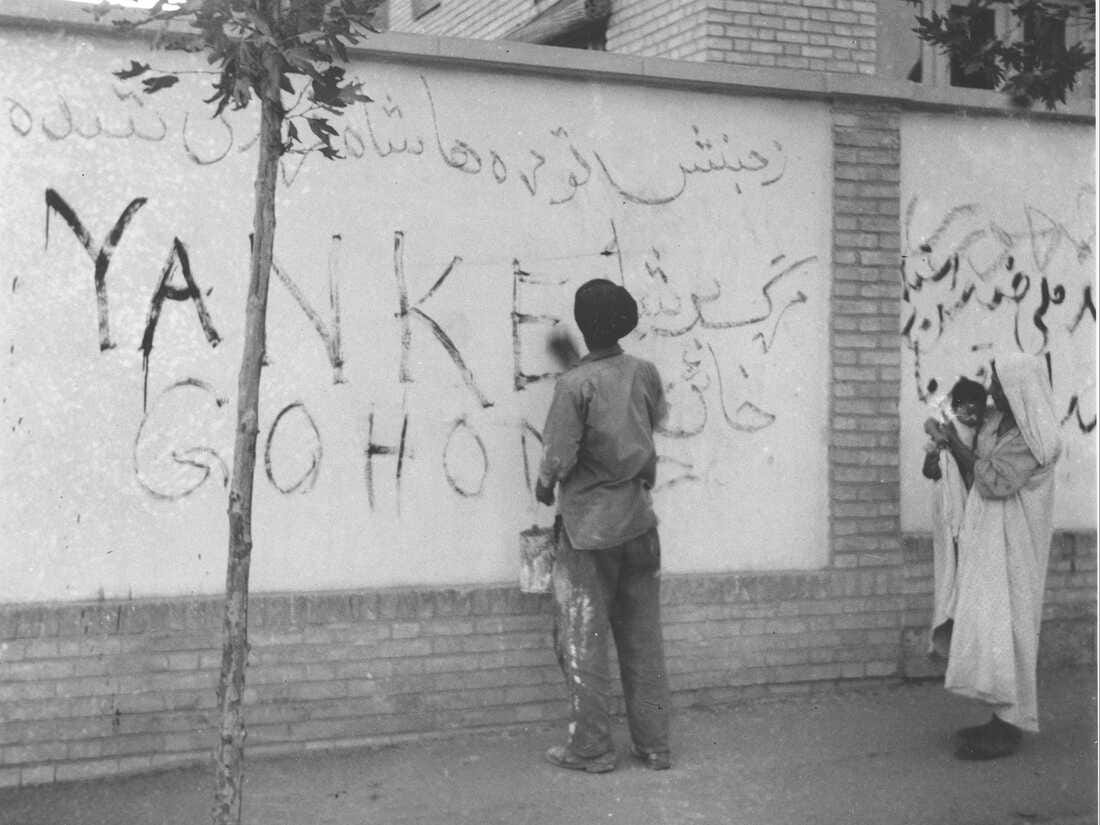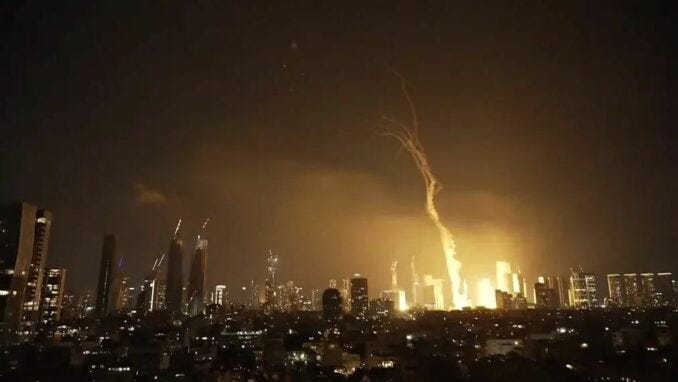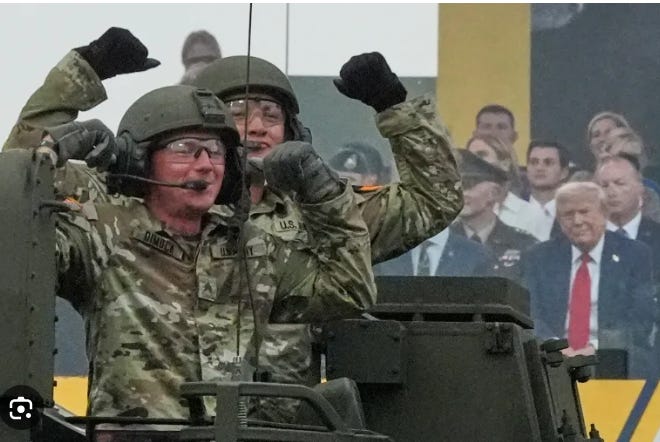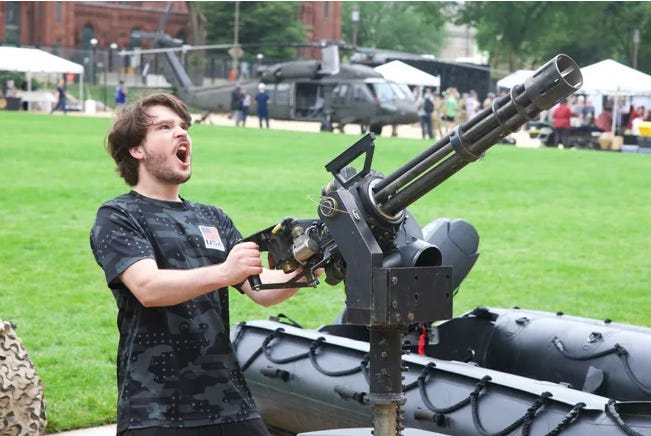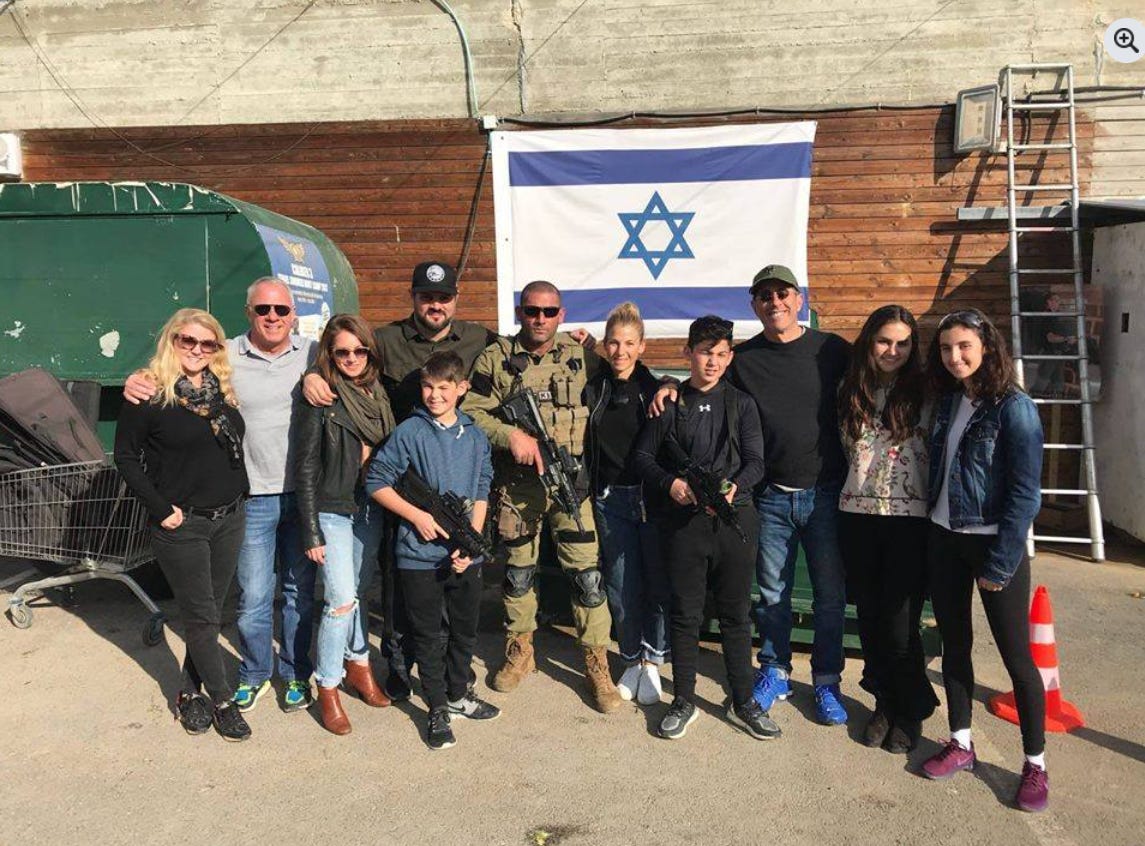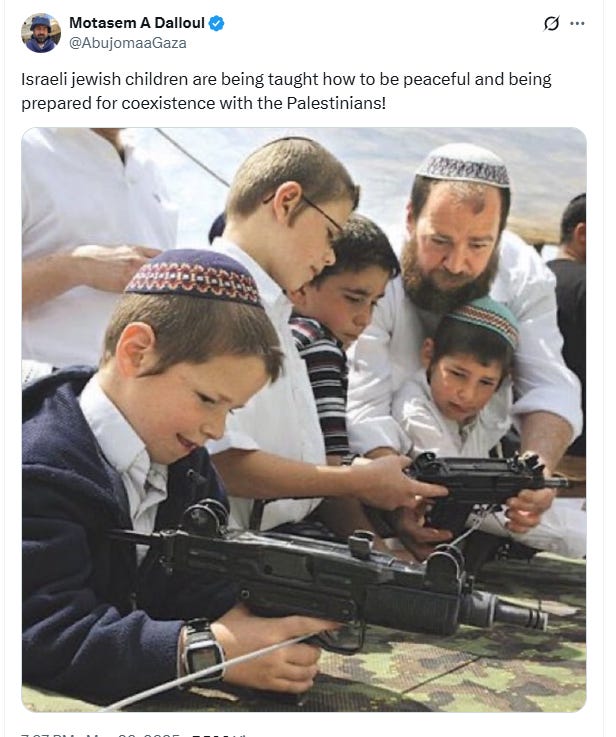Content warning: The video included in this story contains graphic footage of victims of the Haditha massacre.
Khaled Salman Raseef remembers being jolted awake by a loud explosion near his home on the morning of November 19, 2005—exactly two decades ago today.
In Haditha, a once-peaceful Iraqi city along the Euphrates River, such sounds had become routine. The close-knit neighborhoods had been transformed into a war zone after the U.S. invasion and the fall of Saddam Hussein more than two years earlier. Insurgent groups, including Al Qaeda, had taken root here to fight American forces.


By then, Raseef and his neighbors had a routine for when an improvised explosive device (IED) exploded and U.S. raids followed. They hid the elderly, women, and children in a back room, while the men opened the doors and tried to speak calmly. Whatever happened—whether troops burst in with assault rifles raised or smashed furniture—the rule was always the same: stay polite, Raseef says, speaking in his home in Haditha.
“Usually, about an hour after an explosion, everything goes back to normal,” the 51-year-old lawyer explains. “But that day was unlike any other.”


Bursts of M16 fire cracked through the morning air, followed by a grenade blast—then more gunfire. Snipers took positions on rooftops; women screamed nearby. With no cell phones or internet, residents had no way of knowing what was happening, Raseef recalls.
For hours, the sounds came in waves—gunfire, a single shot, an explosion—each followed by an eerie silence.
By afternoon, residents emerged waving white flags, fleeing the neighborhood. What Raseef then found changed his life forever. Within those few hours, U.S. Marines had killed 25 unarmed civilians, including four women and six children. Most were shot at close range in their homes. Fifteen were from Raseef’s own family.
“After that day, we feared the Americans more than Al Qaeda. They were monsters for what they did.”
The incident led to one of the most high-profile war crimes cases in modern U.S. military history. Yet two decades later, no one has been held accountable for one of the Iraq War’s most egregious civilian massacres. But the atrocity remains an open wound for those who survived.
“There isn’t a day I wake up and don’t think about what happened,” Raseef says quietly. “It’s become a part of me. It lives with me every day.”
Assassinated by democracy
Raseef guides me through Haditha’s streets, past multi-story stone homes that have witnessed generations of life—and the sudden intrusion of death. Some walls still bear embedded bullets.
“This is my cousin’s house,” he says, pointing to one riddled with holes. “He wasn’t home during the massacre, or he probably would have been killed too.”
As he traces the paths between the targeted homes, Raseef recounts the names of every person and child killed, the oldest a 76-year-old grandfather and the youngest only three. Graffiti on one deserted home once read: “Democracy assassinated the family here.”
He leads me to the cemetery where the victims were hastily interred by surviving family, some graves holding multiple bodies, out of fear U.S. troops might return and strike again.


At his home, Raseef spreads photos across the cold tile floor. The U.S. military sealed them for years, but they were released last year after The New Yorker’s In the Dark investigative team sued for their disclosure. The images are graphic and devastating—24 men, women, and children slaughtered in defenseless positions. Numbers are scrawled across their bodies, marked by Marines with a red Sharpie in the killings’ aftermath to differentiate the dead.
The photo release marked a small victory in a now decades-long fight for justice. During In the Dark’s years-long investigation, they uncovered a 2014 interview with then–Marine Corps Commandant General Michael Hagee. The interview revealed Hagee boasting about keeping the Haditha photos secret, saying he was “quite proud” they “still haven’t been seen”—a lesson, he added, learned from Abu Ghraib.
Raseef printed the photos before my visit, determined to ensure the world sees the evidence long buried.


“This one… this is my sister, Asmaa,” Raseef says, pointing to a photo of a 32-year-old woman slumped over her four-year-old son, Abdullah—both killed at close range in a corner of their living room, where Marines had ordered them to gather. Asmaa’s arm rests around the child—perhaps a final, instinctive attempt to shield him—while the bullet wound at the back of Abdullah’s head suggests the shooter stood above him, firing down.
In this house, seven people were killed, all Raseef’s relatives. Asmaa’s husband, Waleed, was found badly burned, nearly fused to the linoleum floor, later found to be struck by a white phosphorus grenade. The only Marine known to have been carrying such a device that day was Second Lieutenant William T. Kallop, who never faced charges for his actions.
A grenade was also thrown onto the grandfather lying on the bed, and Marines later used his severed leg for an impromptu soccer game—one of several gruesome acts uncovered on their personal cameras. Only two children from this home, six-year-old Abdulrahman and eight-year-old Iman, survived.
In a Naval Criminal Investigative Service (NCIS) inquiry, Lance Corporal Stephen B. Tatum—who initially admitted to knowingly shooting women and children before later recanting and accusing investigators of fabrication—expressed surprise that anyone could have survived, saying he stopped firing only when nothing in the room was left moving.
Other photos show eight bloodied bodies from a second house—that of Raseef’s cousin, Younis Salim Raseef—who was shot as soon as he opened the door. The rest were killed in a back bedroom. In one image, Younis’s 40-year-old wife, Ayda Yassin Ahmed, lies on the bed surrounded by her dead children: eight-year-old Mohammed, 10-year-old Saba, five-year-old Zainab, and three-year-old Aisha.

Fifteen-year-old Noor, Ayda’s other daughter, is slumped beside the bed. Her surviving sister, 11-year-old Safa, later recounted that she and Noor had been hiding there when a Marine fired beneath the bed—missing her but killing Noor.
In his statement to investigators, Tatum admitted—before later denying—that he had followed Staff Sergeant Frank Wuterich, the squad leader, into the room, and that they both opened fire knowing women and children were inside. Tatum described seeing a child with short hair, wearing a white shirt, standing on the bed. “Knowing it was a kid,” he said, “I still shot him.”
No weapons, contraband, or sign of insurgent presence was ever found in these homes. The only three child survivors lived purely by chance.
“It’s very hard to look at these images,” Raseef tells TRNN, his gaze lingering on them as though caught in a recurring dream. “My mind just stops when I see them. I go numb. What was the guilt of these women and their small children?”
“But it’s important to show them to the world,” he adds. “To show the truth of what the Americans did to my family.”
River of blood
Shortly before U.S. Marines went house to house, killing unarmed men, women, and children, an IED detonated beneath the road in Raseef’s neighborhood, striking one of four Humvees in a 12-man Marine convoy. The blast destroyed the vehicle, killing 20-year-old Miguel Terrazas and wounding two others.
Moments later, the Marines stopped a car carrying five unarmed Iraqi men—Ahmed Fanar Muslih, Wajdi Ayad Abdulhussein, Akram Hameed Fleh, Khalid Ayad Abdulhussein, and Mohammed Battal Ahmed—aged 19 to 29, on their way to a college in Baghdad. The men were ordered out and executed on the spot.

While some Marines later claimed the men had been trying to flee, Sergeant Sanick Dela Cruz—who admitted to urinating into the exposed skull of one victim—told investigators the men were simply standing beside the car, some with their hands raised, when Wuterich, the squad leader, opened fire.
One photograph released last year partly substantiates this account: one slain man lies on his back, legs folded beneath him, suggesting he may have been kneeling when shot. The Marines searched the bodies and the vehicle but found no weapons.
Survivors believe the massacres were acts of revenge—Marines punishing the neighborhood for their comrade’s death. The U.S. military demanded full cooperation to report insurgent activity, leaving civilians caught between militants who executed collaborators and U.S. forces who detained suspected sympathizers. The convoy attack likely led the Marines to see the entire neighborhood as complicit.
The homes targeted were simply those closest to the IED blast—unlucky in their proximity. After the Marines finished in the first two houses—leaving 15 civilians dead amid a trail of bullets and grenades—they moved on to a third.
Khaled Jamal Ayed was just 14 at the time, but that day has replayed in his mind for two decades. He remembers U.S. forces bursting through the gate of his family’s compound—two modest homes belonging to his father and grandfather, enclosed by a thick cement wall—guns raised, shouting commands in broken Arabic and bursts of English.
“Fuck you! Fuck you!” he recalls them yelling. The Marines approached this house more deliberately.
His father Jamal, who worked at a car dealership, immediately told the Marines about an unloaded rifle inside his home, permitted under U.S. occupation for personal protection. The marines gathered everyone in the shared garden and forced them into a line: his parents, grandparents, three uncles, their wives—one pregnant—and a child.
Ayed’s uncles—one a traffic police officer, another a government engineer, and the third a border customs officer—tried to explain they worked for the Iraqi government, not the insurgency. One even carried a Marine-issued pass identifying him as a U.S. ally. “Shut up!” the Marines barked back.
“Everyone felt there was something strange about this raid,” recalls Ayed, speaking to TRNN at a café in Ramadi, about 92 miles from Haditha. He remembers spotting blood on the uniform of one Marine—later learning his name was Frank Wuterich. Lance Corporals Justin L. Sharratt and Hector Salinas were also with Wuterich at the family’s compound that day.


“But no one imagined they would kill,” Ayed says. “We thought the worst that could happen was arrest.” After searching the homes, the Marines ordered Ayed’s father and three uncles into the grandfather’s house. When Ayed tried to follow—seeing himself as one of the men—his aunt pulled him back.
Another Marine—believed to be Salinas—forced the elderly, women, and children into the house of Ayed’s father and held the door shut from the outside. When Ayed’s mother tried to open it, he smashed a window with his rifle butt.
“We became very scared and went silent,” says Ayed, now 35. Then came gunfire. At first, they thought it was distant—snipers, maybe.
When the shots stopped, his mother cautiously opened the door. The Marines were on their way out. “One of them smiled at me,” Ayed remembers. They rushed to the grandfather’s house and found the men’s bodies collapsed in pools of blood.
All four men—Ayed’s father Jamal and his three brothers, Chasib, Qahtan, and Marwan—were shot in the head at close range.
Chasib and Qahtan were both shot in the face at the doorway. Ayed’s father was found crouched beside a large wardrobe, a bullet wound to the back of his head. Investigators later recovered a 9 mm round, a weapon type only Sharratt carried. Inside the wardrobe lay Marwan’s body. He had tried desperately to hide but was shot in the head through the closet door with a single round from an M16—only carried by Wuterich.
“They killed all of them,” Ayed says, his voice trembling. “It was like a river of blood.” In shock, Ayed ran—he doesn’t remember where or how far—while the women’s screams filled the air.
Amid the terror and bloodshed that morning was another man—almost forgotten—killed by Marines in Haditha: 27-year-old Mamdouh Hamid. In the Dark later uncovered his story.
That morning, Mamdouh, his brother, and two cousins were on their way to a job when they entered Raseef’s neighborhood and came under fire, likely from Sharratt. One cousin was hit but survived; the others fled—running straight into another Marine squad. Mamdouh was shot in the head.
Neighbors pulled him into a nearby house, where he was still conscious. Marines entered soon after, collected him, and loaded him onto a helicopter. Then he vanished. For nearly two decades, his family lived in torment, never told if he was alive or dead.
Only recently did they learn the truth: Mamdouh’s unidentified body had been kept in a Baghdad morgue and later buried in an unmarked grave all those years.

Monsters and impunity
The next morning, Haditha awoke to a grim reality.
Ayed couldn’t comprehend what he had witnessed, convincing himself that his father and uncles must be playing a prank. “I thought maybe it was just a bad joke,” Ayed says. “When I was a child, my uncles used to pretend they were dead as a game. I thought maybe they were doing that again.”
When Raseef reached his sister Asmaa’s home, the silence was unsettling. Inside, blood covered the floors, walls, and furniture—its metallic scent thick in the air. Drag marks streaked toward the doorway.
At the hospital, he found crowds gathered outside a small, chilled room serving as a makeshift morgue. Inside, bodies and body parts lay across the floor—some zipped in body bags, others stuffed into trash sacks. Raseef identified 14 relatives, though Waleed’s body was too badly burned to recognize.
A Marine assigned to collect and transport the bodies later testified that his superiors instructed him to tell hospital officials, upon delivering the corpses, that “the Marines were sorry about this, but this is what happens when you allow terrorists to use homes to attack Marines.”
A Marine assigned to collect and transport the bodies later testified that his superiors instructed him to tell hospital officials, upon delivering the corpses, that “the Marines were sorry about this, but this is what happens when you allow terrorists to use homes to attack Marines.”
It’s a justification that still echoes bitterly for Raseef, who struggles to reconcile the U.S. promises of liberation with the reality that followed. “Before the invasion, we believed the Americans would make everything rosy after Saddam,” he tells TRNN. “We thought Iraq would become the pearl of the Middle East, like they promised.”
His voice hardens. “Instead, they killed almost my entire family. They destroyed my country and every dream we had. After that day, we feared the Americans more than Al Qaeda. They were monsters for what they did.”
The U.S. military offered Raseef’s family “condolence payments” of $2,500 for each person killed—money he says he accepted only “to prove the Americans knew my family were civilians, not terrorists.”
Ayed recalls his mother being offered a single $2,500 payment—not for the murders of her husband and his brothers, but simply to repair their damaged home.
“But we didn’t want the money,” says Raseef, who was serving on the city council at the time and later became its head during Haditha’s 2014 defense against the Islamic State (ISIS). “We wanted justice for our families whose lives were brutally stolen.”
Weeks after the killings, Raseef asked a man he knew to film inside his sister’s and cousin’s homes, capturing the bloodstains and fragments of bodies that remained. The act was dangerous—Marines could have easily labeled the footage insurgent propaganda, an offense that could lead to arrest or imprisonment.
The footage was eventually combined with other recordings from the incident, forming a 22-minute compilation showing the chaos: the hospital scene where bodies had been taken, a bloodied head on the floor, an older man lifting a black tarp to reveal a small child, her face covered in blood.
The video, which was obtained by this reporter, was smuggled out of Haditha and given to an American journalist at Time Magazine, whose reporting in January 2006 brought international attention, even prompting then President George W. Bush to comment: “Obviously, the allegations are very troubling for me and equally troubling for our military, especially the Marine Corps.”
In March, a full NCIS investigation was launched after it emerged that the Marines’ initial report—claiming the civilians had died in the IED explosion and ensuing crossfire with enemy fighters—had been fabricated.
The evidence was overwhelming—photographs, eyewitness testimonies from survivors, and even self-incriminating statements from the Marines themselves. A little over a year later, four Marines—squad leader Frank Wuterich, Justin Sharratt, Sanick Dela Cruz, and Stephen Tatum—were charged with murder, each facing decades in prison.
The grieving families in Haditha grasped at the hope that justice would follow. But within the murky confines of the U.S. military justice system—where accountability follows its own set of rules—the outcome was far from that.
Sharratt was the first to have his charges dropped. The decision came from Lieutenant General James Mattis, who would later serve as Secretary of Defense in the first Trump administration. Mattis chose to dismiss all charges against Sharratt, despite his own staff lawyer’s recommendation that Sharratt “should be tried for murder.”
One by one, the cases against the other Marines were also dropped, presumably in exchange for their testimony against Wuterich, the squad leader. In the end, only Wuterich would stand trial for the killings.
Before the trial began, prosecutors asked the judge to remove the victims’ names from the charges and replace them with numbers. The judge agreed, saying, “It’s almost as if the language of naming the actual person could be considered almost superfluous.” At trial, the victims were referred to only by the numbers the Marines had marked on their bodies after the killings.
In 2008, prosecutors traveled to Iraq to depose survivors, forcing the children of Haditha to relive what they’d seen. The children were shown gruesome photos of their family members and made to recount each killing step by step. In the Dark obtained transcripts from these sessions, including the exchange between a prosecutor and then nine-year-old Abdulrahman.
“Do you live with your mom and dad?” he was asked. “No,” he replied. “And why not?” “They’re dead.” None of these testimonies were ever heard in court.
In 2012—more than six years after the massacre—Wuterich accepted a plea deal reducing his charges to a single count of negligent dereliction of duty for ordering his Marines to “shoot first, ask questions later”—a minor offense. His punishment was a demotion in rank, and the massacre was recast as nothing more than a breach of procedure.
After what became one of the Marine Corps’ longest and costliest criminal inquiries, all the men implicated in this dark chapter of the Iraq War walked free.
American exceptionalism
As the Marines exhaled in quiet relief, Haditha’s residents found no reprieve. The memory of that day still trails them—an unrelenting ghost that shadows every street. Each year, on November 19, a pall settles over the city, as it slips back into the silence of remembrance—an ache undimmed by time.
“I’ve learned there’s no such thing as justice in the American system,” Raseef says, his words heavy in the still air of his home. “For a long time, I tried to convince myself that if their soldiers were barbaric, their justice system would still be fair—but I was wrong.”
“Americans gave themselves the right to kill innocents without consequence,” he adds. “Their whole system is anti-human.”
Haditha was not an aberration, but reflects a recurring pattern of U.S. war crimes and impunity worldwide, says Marjorie Cohn, a legal scholar and professor at Thomas Jefferson School of Law.
“The system was never designed to genuinely hold anyone accountable for the Haditha massacre,” she tells TRNN. “The outcome simply extended a long-standing pattern of U.S. military courts failing to deliver justice for victims of American war crimes.”
It was, she adds, yet another “ugly manifestation of American exceptionalism,” where U.S. military personnel operate above international law.
During its investigation, In the Dark analyzed 781 potential war crimes committed in Iraq and Afghanistan by the U.S. military—including murder and assault. Yet fewer than 20% of those implicated received any prison time, with a median sentence of just eight months. Most others faced only minor penalties such as pay cuts, demotions, or written reprimands.
In the Dark analyzed 781 potential war crimes committed in Iraq and Afghanistan by the U.S. military—including murder and assault. Yet fewer than 20% of those implicated received any prison time, with a median sentence of just eight months.
The violence in Haditha also mirrored U.S. conduct across Iraq, where the occupation left nearly half a million dead and tens of thousands detained without charge—often tortured. The Marines’ actions forever reshaped Iraqi views of the U.S. presence, says Abdul Rahman Najm Al-Mashhadani, president of the Hammurabi Human Rights Organization (HHRO).
“Haditha stripped Iraqis of any illusion about the U.S. military’s intent,” Mashhadani tells TRNN. “They didn’t come to liberate, but to conquer—turning from an army meant to protect civilians into one that kills them. After Haditha, no Iraqi still respected the U.S. government.”
Alternative paths to justice, outside the opaque U.S. military courts, are almost nonexistent. A 1946 U.S. law shields American forces from liability, and the U.S. is not a party to the International Criminal Court (ICC). Even when cases have fallen under ICC jurisdiction—such as alleged war crimes by U.S. forces in Afghanistan—political pressure from Washington effectively halted investigations.
In 2002, amid preparations for the Iraq invasion, Congress also passed the “Hague Invasion Act,” authorizing the president to use military force to free any U.S. or allied personnel detained by the ICC—effectively shielding Americans from international justice.
There has been limited success using the Alien Tort Statute (ATS), which allows non-U.S. citizens to bring civil actions in U.S. federal courts for violations of international law. But several Supreme Court rulings have greatly restricted its reach, making it nearly impossible for Iraqi victims to seek justice in U.S. courts.
This pervasive impunity granted to the U.S. government has ensured no real lessons were learned from Haditha, says Cohn. “The United States continues to engage in illegal wars with little to no accountability,” she tells TRNN. “Washington’s impunity extends to its own atrocities, as well as its military, financial, and diplomatic support for others — including Israel’s campaign of genocide in Gaza.”
Despite calls from three Democratic senators for an investigation into the Haditha cover-up following last year’s photo release, no action was taken. “The U.S. government guarantees that genuine accountability for war crimes never takes place,” Cohn says.
Tell the truth
Ayed grew up in a Haditha far different from the one his elders knew—a town steeped in a profound grief that lingered long after U.S. troops left.
For months, a piece of brain tissue, which Ayed believed to be his uncle Marwan’s, stubbornly clung to the family’s ceiling, as if refusing to part from the home no matter how many times they tried to scrub it away.
“If the U.S. government doesn’t care about these crimes, then the public should.”
He watched his grandmother, who lost her four sons, sink into suicidal despair, his relatives wrestling a knife from her hands as she tried to end her life. He witnessed his grandfather wither under the weight of sorrow until he went blind—the family believes from endless crying. He died about a year later, his spirit extinguished long before his body followed.
For hours and hours, Ayed found himself scrolling through the Facebook pages of Sharratt and Wuterich. Consumed by war crimes that shaped his entire life, he followed every post they made.

“My mother tells me she keeps living only for my sake — because I happened to survive,” says Ayed, who is now a father of two small children and works as a lecturer of computer science.
Photos showing the aftermath of his father’s and uncles’ killings were also released last year. Ayed, however, refused to have them published in the media and cannot bring himself to show them to his mother.
“When I saw them, it felt like it was happening all over again,” he explains, scrolling through them on his phone and pausing on an image of his father’s body. “I remembered this sweater he was wearing… even the day he bought it.”
Ayed has little hope that justice will come for his family—at least not in this life. “But I want to keep these photos as evidence, just in case,” he says.
A few years ago, Sharratt took his own life, shooting himself in the head with a 9 mm—the same weapon he had used to kill Ayed’s father all those years ago.
When Ayed heard the news, he didn’t rejoice. “Our religion teaches us to act in ways that please God, and in Islam we cannot be happy over someone’s death,” he tells TRNN. “But to be honest, inside I felt a kind of victory. He died the same way he killed my father. I take it as God’s message—that one day we will have justice for what they did, and that each of those men will end up in the darkest part of hell.”
“The American system may shield them in this life,” he adds, “but they cannot escape God’s justice—no person, military, or court will protect them from that.”
The sunlight stretches across Raseef’s living room back in Haditha. The loud drone of a generator-powered air conditioner battling Iraq’s heat fills the silence as he runs out of words for the horrors he witnessed. His eyes drift back to the photos, each one a reminder of a brutal crime left unpunished.
“If the U.S. government doesn’t care about these crimes, then the public should,” he says, carefully choosing his words, hoping to pierce the humanity he still believes resides in the American conscience. “Americans pay their taxes so their military can fight terrorists who threaten the world, not to slaughter innocent, defenseless civilians.”
“If the U.S. ever wants to redeem itself in the eyes of the world then they should start with Haditha,” he adds. “They need to tell the truth about what they did here and punish those who did it.”
This post was originally published on The Real News Network.








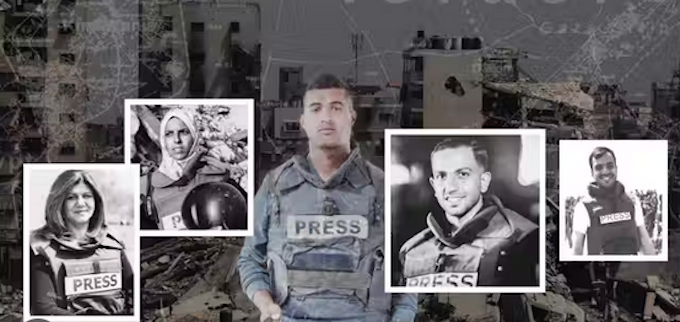









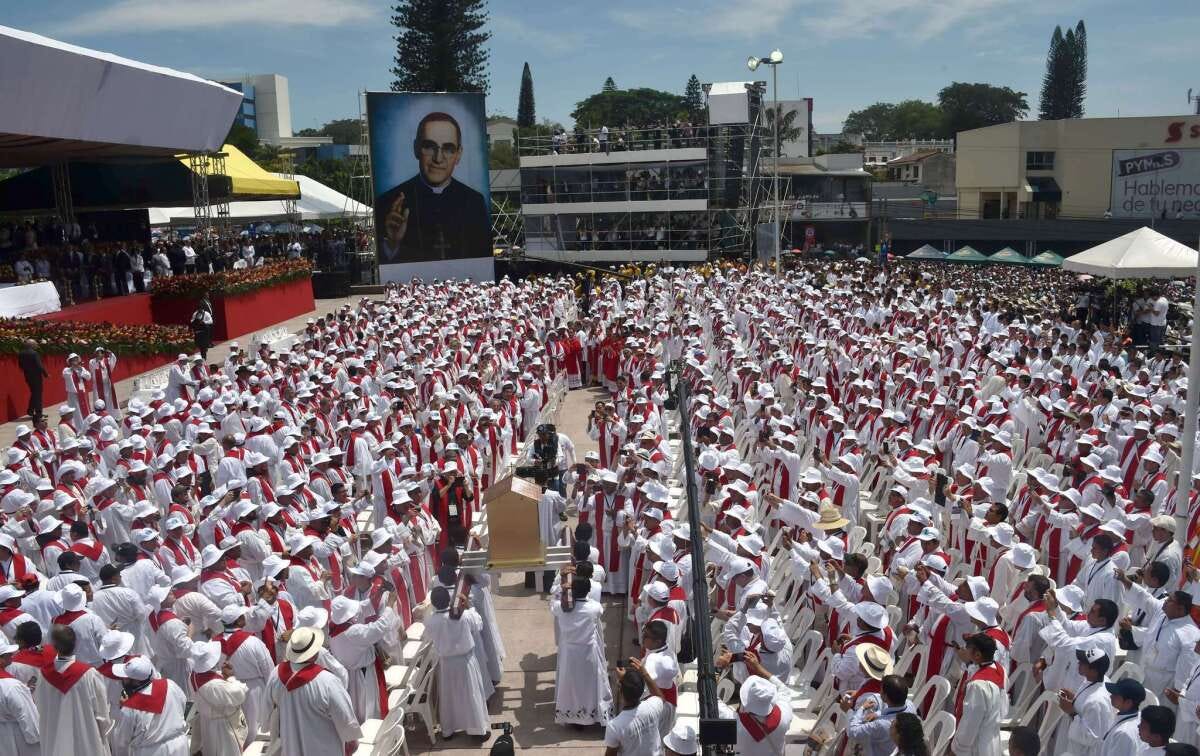
















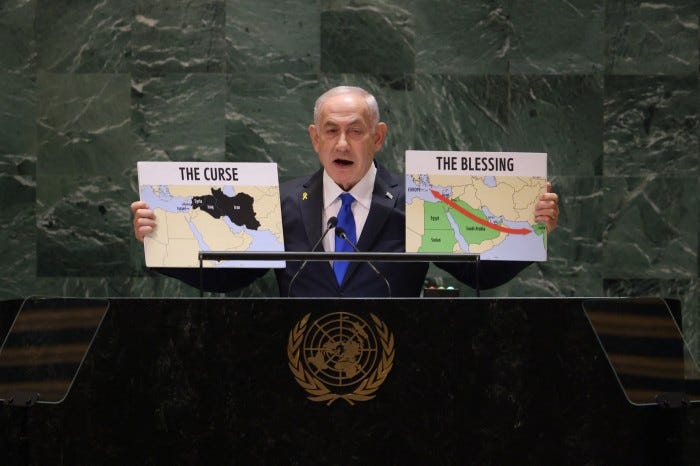



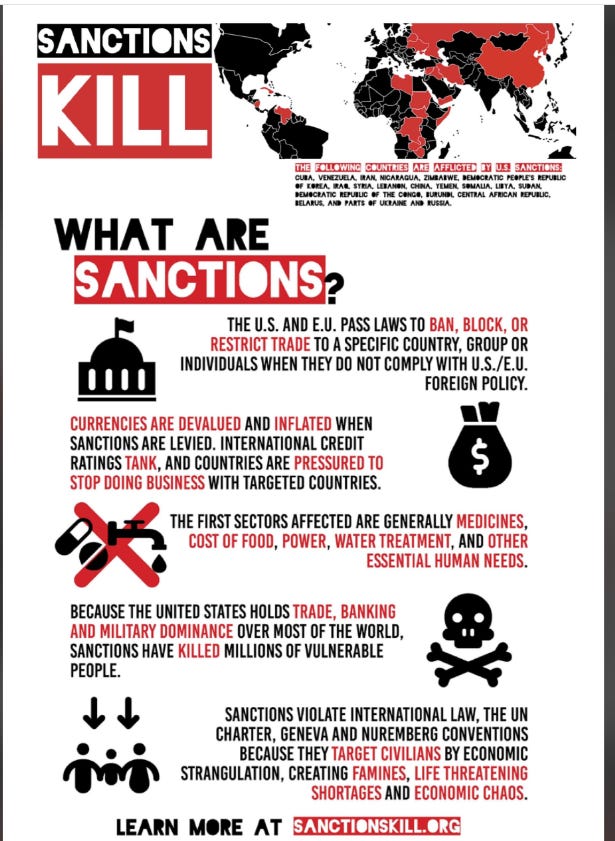















 (@mustang_rranjan)
(@mustang_rranjan)


